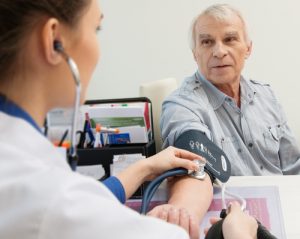
U.S. Rep. Troy Balderson (R-OH) was among 34 lawmakers who called on congressional leaders to provide Medicare payback flexibility for rural hospitals struggling financially during the current pandemic.
“Many rural hospitals, including some in the Twelfth District, provide rural Americans’ only access point to care, which is why these hospitals play a vital role in the well-being of rural communities,” Rep. Balderson said on Monday. “In daily conversations with these hospitals, it’s evident the coronavirus pandemic magnifies the hurdles and challenges these hospitals already face. We can’t allow this pandemic to put the future of rural hospitals — and the well-being of Americans — in jeopardy.”
Specifically, such payback flexibility should be provided for rural hospitals participating in the Medicare Accelerated and Advance Payment Program, according to an April 17 letter signed by Rep. Balderson and his colleagues and sent to leaders in both houses of Congress.
The Medicare Accelerated and Advance Payment Program provides loans from Medicare to providers that already bill Medicare regularly for services. For providers facing financial hardship, advance payments help finance operations without gaps in service, according to information provided by Rep. Balderson’s office.
Advance payments through the program usually are paid back with interest by providers, however, “many hospitals, especially critical access hospitals and sole community hospitals, fear the inability to repay the accelerated payments once this crisis is over,” the members wrote.
Rural hospitals, in particular, have seen their revenue sources dry up during the pandemic and “wonder if they will have to close their doors as a result of this crisis,” wrote Rep. Balderson and his colleagues.
“As such, we strongly encourage Congress to consider establishing a mechanism for Medicare accelerated payments to be forgiven if they can demonstrate repayment will cause significant financial hardship,” they wrote.



